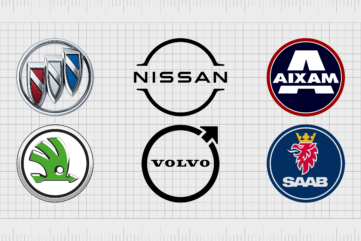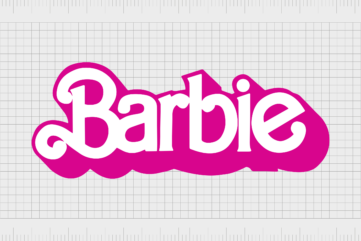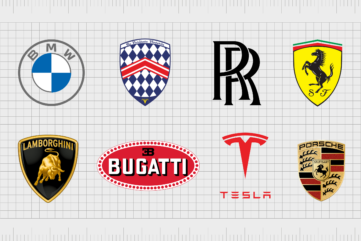What makes a brand successful? 12 essential factors, secrets, and tips

What makes a brand successful? For all the countless successful brands like Apple, Nike, and Google in the world today, there are endless “unsuccessful” alternatives.
Experts estimate there are about 334 million companies worldwide, but there are only a handful of unforgettable brands in any industry. So, what’s the secret sauce? What separates the brands with millions of dedicated fans, from the ones that simply fizzle out?
The answer is more complicated than you’d think. There’s no one magic solution that instantly guarantees a brand’s success.
Instead, successful brands thrive because they use a variety of different tactics to not only build a strong brand identity, but establish an emotional connection with their audience.
The good news is that also means success doesn’t happen by chance. If you can effectively dissect the most powerful elements of the world’s most successful brands, you can replicate their results.
That’s exactly what we’re going to help you do today.

What is a successful brand? The basics
When you think of brand success, what do you visualize? For most business leaders, “successful branding” is all about awareness and recognition.
If millions of people know your brand and what it stands for, surely that means you’ve created a great brand, right? Well, to an extent.
Brand recognition is important. Being visible in your target market, using marketing campaigns to extend your reach and “standing out” from the crowd definitely leads to more sales and profits.
Just look at companies like Apple, the world’s first trillion-dollar company, or Disney, one of the biggest businesses in the world. These companies both have excellent levels of brand awareness and recognition. But recognition alone doesn’t guarantee success.
There are plenty of other companies that have had excellent brand awareness, but failed to survive due to a lack of brand loyalty, or an inability to adapt. Think Toys R Us, or Sears, for instance.
That’s because what makes a brand successful goes deeper than a memorable name, logo, or tagline. To really survive and thrive in today’s competitive world, you need to make a connection.
That’s what branding is all about, developing a bond with your existing and potential customers that transforms them into advocates for your business, elevates your brand equity, and preserves your competitive advantage.
A great brand carves a space for itself in the hearts and minds of customers. After all, around 95% of all purchasing decisions are emotionally driven – made subconsciously based on our values, our experiences, and our feelings.

What makes a brand successful? 12 elements of brand success
So how do you turn your company from just another business selling a commodity into something your customers can really connect with? What turns everyday people into loyal customers?
Buckle in, there are a lot of factors to consider.
1. Uniqueness
This is probably the most obvious component of successful branding. You’re never going to cultivate brand loyalty if you’re just another “option” in a sea of similar companies.
To become a successful brand, you need to be “the” brand for your target audience. The only one that delivers your special combination of great products, unique features, exceptional customer service, and brand values.
The trouble is, differentiation is hard. It’s tough to preserve what makes your company unique as industries continue to grow. You need to find something that can stand the test of time, like Coca-Cola’s focus on being the “original” coke drink, or Tesla’s approach to innovation.
Plus, you can’t be afraid to alienate some customers. The more you differentiate, the less “ideal” you’ll be for certain segments. That’s why you need to know exactly who you want to reach, and why they’re the right customer for your company.
2. An understanding of your audience
We mentioned above that successful branding is all about making an emotional connection with your target audience. It’s tough do that if you don’t know exactly who you’re trying to serve.
One of the biggest mistakes we see new companies making when developing their brand strategy is failing to research their audience. They assume they can take a broad approach and attract as many different customers as possible.
However, the reality is that your brand is only going to be ideal for a specific sub-set of people. It’s up to you to identify your “tribe”.
Even before you start investing in product design and marketing campaigns, you should be conducting market research, learning about the pain points and goals of your customers, and defining what you can do to serve your specific niche.
A strong understanding of your audience is how you set the foundations for long-term relationships with your unique community.
3. A compelling visual identity
Ok, so as we said, there’s more to great branding than just a logo or color palette. But your visual identity still plays a role in how well you connect with your customer base.
Just look at the golden arches of McDonalds. They’re not just instantly recognizable, they convey something to their audience. The golden “M” highlights concepts of happiness and value.
The simplest things, like the colors you choose for your branding, can make the biggest difference. Using a signature color is enough to increase brand recognition by 80%, and every color has its own emotional impact on consumers.
The world’s most successful brands don’t choose their images by chance. They work with experts to craft the visual aspects of a brand that resonates with their audience. Whether you’re investing in your brand logo, or looking at other elements of design, like font choices, strategy is key.
4. An evocative story
Every brand has a story. The big brands that really stand out in today’s world are those who know how to share that narrative with their audience.
Storytelling is one of the key elements of successful branding, because it shows your customer there’s more to your business than just money and products. Why did you decide to build your business? What’s your purpose – beyond making a profit?
Great stories move people emotionally, and forge lasting bonds. Everyday, people are bombarded with tons of different marketing materials and messages. They need some way to connect with what’s going on behind the scenes of your company if they’re going to support you.
Take a look at the Toms shoes brand for instance. The founder saw children in Argentina playing on the streets without shoes and decided to create a company dedicated to giving back.
It’s stories like these that resonate with customers on an emotional level, and turn them into advocates for your business. Everyone wants to be a part of an amazing story.
5. Strong values
Branding isn’t just a tool for differentiating yourself from tons of other companies. It’s supposed to make it easier for your customers to make purchasing decisions. Since, as we mentioned above, most of our decisions are emotional, we make choices based on things like “shared values”.
77% of customers buy from brands that share the same values as they do. So, if all your company really cares about is making money, you’re not going to last long.
A good brand is governed by a set of brand values that aligns with their audience’s priorities and interests. Look at Patagonia and its approach to protecting the earth, or Nike and its commitment to helping everyone achieve their athletic goals.
Here’s where things get tricky. It’s not enough to just “have” values. You also need to embody and demonstrate them. Customers can tell if you’re just saying you care about the environment or social responsibility, but you’re not actually doing anything about it.
With that in mind, when you’re choosing your brand values, think about how you’re going to embody them, with your marketing messages, your approach to business, and even how you create products.
6. Authenticity
If strong values are part of what makes a good brand successful, authenticity isn’t far behind. As mentioned above, you can’t just promise customers a good experience, or tell them you’re committed to protecting the environment if you’re not living up to those claims.
Today’s customers will actively boycott well-known brands, just because they’re not acting honestly, or authentically. In fact, 3 out of 4 customers say “transparency” is essential when they’re deciding which companies to buy from.
So, how do you show authenticity? Simply put, live up to your brand promise. Invest in being “real” with your customers. This could mean transparently showcasing your supply chain and product design strategies to your audience.
It could involve sharing user-generated content like reviews and testimonials on your website and social media accounts. It could even mean owning up to your mistakes and apologizing for the things you do wrong from time to time.
7. A brand promise
Part of what makes a great brand successful is what they “promise” their target audience. Apple, for instance, promises customers secure, simple, and innovative experiences with every device they make – and they deliver on that promise.
Amazon promises customers the widest selection of products, while also committing to removing friction and stress from the buyer journey. Again, they commit to delivering on that promise by constantly innovating, updating their marketplace and delivery solutions.
Choosing a brand promise can be relatively easy. After all, you just need to think about what matters to your customers, what your company’s values are, and your brand vision.
The tricky part is actually living up to your promises. Anyone could tell customers they’re going to create the most engaging theme parks in the world. But Disney goes a step further by finding unique ways to deliver on that goal.
It infuses everything from unique smells and visual elements to intuitive customer experiences into a solution that goes above and beyond any other offering in the world.
8. Customer centricity
Name some of your favorite companies. You might choose brands like Nike, or Starbucks. What makes them so attractive to you? More often than not, it’s the focus on a great user experience that stands out – not just products or pricing.
A compelling “brand experience”, built around a focus on the customer (not profits), is part of what makes a brand successful. People will always advocate for, and support companies that put their best interests first.
So, how do you address the specific needs of your customer? What do you do to make it easier for them to interact with your brand and buy your products or services? How do you ensure every customer you work with turns into a dedicated “fan” of your company?
You could focus on common pain points, like Amazon, who got rid of slow delivery times and complexity in the purchasing process. Or you could look at more intangible factors. For instance, Starbucks turns every coffee shop into a welcoming, friendly environment.
9. Memorable marketing
There might be more to a successful brand strategy than simply grabbing customer attention. But good brands know they need to constantly communicate with their audience to make sales.
A compelling story and brand promise will only take you so far if you don’t know how to share it. That means you need to invest constantly in the right marketing, to share your brand message with the world, and show customers what you really stand for.
Every amazing brand, even the ones that don’t invest in traditional advertising much, like Porsche or Rolls Royce, has a marketing strategy.
Every piece of content they create, for social media, their website, or even offline channel highlights their brand’s identity. When investing in your marketing campaigns, don’t just focus on covering as many channels as possible.
Think about how you can share your brand story, and showcase your brand’s personality with a unique tone of voice, great visuals, and meaningful narratives.
10. Bravery
This is something we usually see missed out of articles about successful branding – but it’s more important than you’d think. Ultimately, business owners need some level of bravery to build an iconic brand, because they need to be willing to take a stand on specific issues.
Now more than ever, consumers expect brands to be champions for the social movements and political issues they care about. Around 64% of consumers would say they would choose between boycotting or supporting a brand based on its position on a specific issue.
So, do you have the bravery to take a stand with your branding strategy? You don’t necessarily have to be controversial, but you do need to pick your battles.
For instance, Lush stands for handmade cosmetics, and fights against animal testing. Patagonia stands for the environment and sustainability.
11. Adaptability
Why do some successful brands stand the test of time, and others wither away into dust? The answer is adaptability. Consistency is important in branding (we’ll cover that in a minute), but you also need to be able to grow and evolve over time.
The world is constantly changing. Customer preferences evolve, markets transform, and businesses need to be able to evolve with them. Look at McDonald’s, for instance. When it first launched, it just wanted to focus on delivering good-quality fast food to customers.
However, as consumers became more health conscious, McDonald’s needed to adapt, introducing new products that were healthier, and more natural.
The need for adaptability is why building a successful brand is an ongoing challenge. You need to constantly pay attention to what’s going on in the world around you, and adjust your company’s brand to match the needs of your audience.
12. Consistency
We know this factor of successful branding seems to contradict the one above. How can you be agile and adaptable and still consistent? Simply put, it’s all about figuring out which aspects of your unique identity should stay the same, at least for as long as possible.
Inconsistent branding confuses your audience. No-one wants to work with a brand that’s constantly changing its views, its image, and tone of voice.
On the other hand, consistency cultivates a memorable brand identity, and builds familiarity with your audience. It shows your customers that you’re not just “rolling with the punches”, you’re committed to delivering on your specific mission statement and vision.
That’s why we always tell the different brands we work with to outline solid brand guidelines so they can retain consistency throughout various marketing campaigns, messaging strategies, and more.
Defining successful brands: Successful branding examples
Still not sure what makes a brand successful?
We get it, there are a lot of different factors to think about, from your color scheme and logo design to the story of your brand. Sometimes, the easiest way to understand the elements of successful branding is to take a closer look at some examples.
Here are a few of the world’s most successful brands, and how they’ve nailed their goals.

1. Tesla
Even if you’re not a massive fan of Elon Musk, you can’t ignore the success of his car company, Tesla. Founded in the early years of the new Millenium, Tesla was built around the changing priorities of consumers, who knew they needed to protect the planet.
Tesla’s clear brand mission, focused on accelerating the world’s transition to energy, resonates with today’s audience. It’s helped to inspire a massive change in the automotive market, and gives Tesla a unique level of value, as one of the world’s most innovative brands.
Tesla doesn’t invest heavily in working with marketing professionals. Instead, it relies on its consumer base, filled with loyal fans, to help spread awareness. That, combined with the company’s constant approach to innovation helps Tesla to stand out.
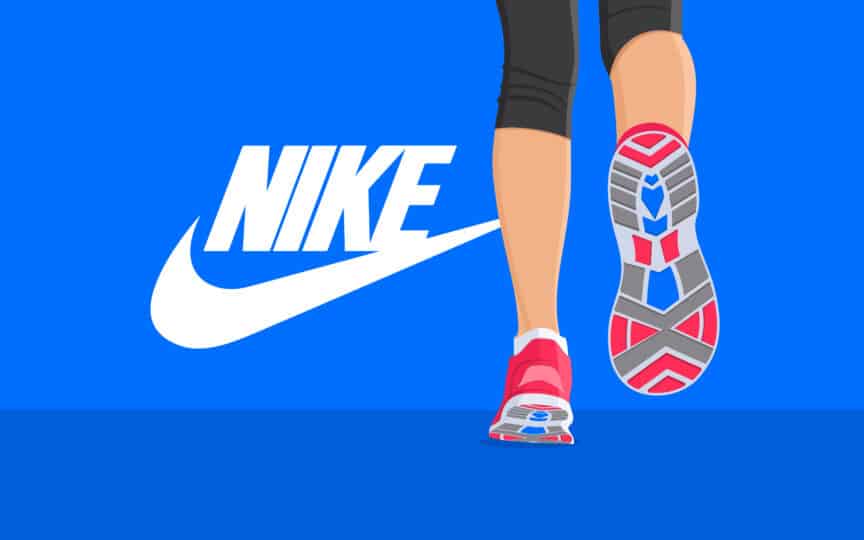
2. Nike
Nike is easily one of the world’s most successful brands. Why? It’s not just because it sells great products. What makes Nike compelling is its distinct identity in the clothing and athletic market.
Nike is a champion for its customers. It focuses on not just selling products, but inspiring its customers to achieve their goals. Every aspect of the Nike brand is inspirational, from the swoosh logo, to the “Just Do It” tagline.
Nike also inspires its customers through storytelling. It shares the tales of both professional athletes and everyday people in its marketing campaigns. This constantly shows its customers how committed the company is to addressing their needs and goals.
Nike successfully appeals to the emotions of its target audience, and activates its fan bases to demonstrate authenticity and trust. It’s also more than willing to take a stand and showcase its values, even if that means losing some of its customers.
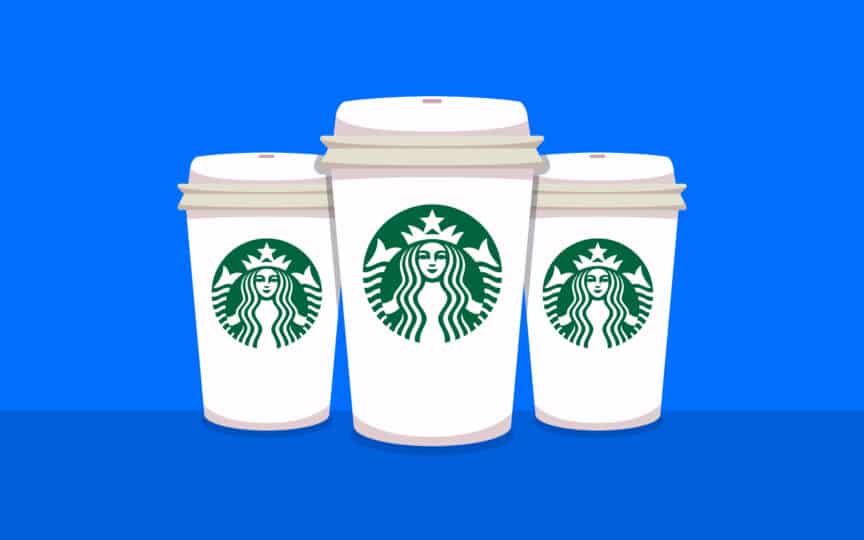
3. Starbucks
Depending on who you ask, Starbucks might not make the best coffee in the world, or even have the best prices. What it does have is a mission to create a “community” for coffee lovers.
Starbucks has a compelling story behind it. The founder wanted to create a coffee chain that mimicked the unique experiences he saw in coffee shops throughout Italy, and scaled those experiences across the globe.
That’s why every Starbucks location is carefully designed to provide a comfortable, social experience. On top of that, Starbucks gives its customers a huge amount of control over the products they purchase. Everything they buy can be customized to their preferences.
This sets Starbucks apart as a company that puts its customers first – and its fans repay it, constantly promoting the company on social media channels like Instagram.
Are you building a successful branding strategy?
Almost every company we’ve worked with as a branding expert has asked the question: “What makes a brand successful?” Every business wants to know the secret to making their brand a smash hit.
However, as you’ve seen here, a successful brand isn’t defined by one thing. The best brands thrive because they have the right combination of multiple different factors, from a great story to a unique personality, and even strong marketing campaigns.
Ultimately, brand success comes from developing an “entity” that connects with your customers on an emotional level, and sets you apart from the competition.
It’s something companies work years to achieve, and it’s also something you need to commit to preserving for the whole life of your business.
Need help getting started? Contact Fabrik Brands today to find out how we can help you build the pillars you need for a successful brand.
Fabrik: A branding agency for our times.









